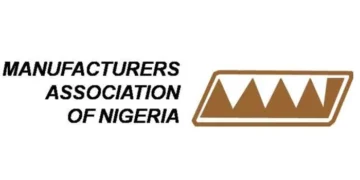Nigeria dropped one place from sixth to the seventh position on the on the Africa Qualitative Trade Barometer (QTB) rankings as confidence of big businesses and corporates waned on lower support from the government.
The latest Africa Trade Barometer Report 2022 by Stanbic IBTC showed that while Nigeria had moved up two places from 10th to eight position on Survey Trade Barometer (STB), driven mainly by directional improvements in the trader’s financial behaviour, there has been little or no government support on trading activities.
According to the report, business confidence has not changed much with small businesses having “a half full glass” while big business and corporates have become less confident than before. The report noted that currency value losses, poor economy and high prices are driving the negative sentiment. Security concerns also undermines business confidence.
“Government is generally seen as neutral or not supportive of cross border trade. Big business is the only sector positive about the support from Government. This could be due to a lack of communication as there has evidently been substantial investments from governments side on infrastructure to aid production.
“The most important ask from Government is financial relief (lowering of duties and business tax) and efficiencies with custom clearance. Whilst Nigerian business seem to be quite optimistic looking to the future, when determining the current state of affairs in terms of Government support and infrastructure, the picture is not particularly good.
“Only two in five Nigerian businesses surveyed engage in cross border trade. Of these, the majority are importers and exporting is only done by a small minority. Though primarily from existing source countries (mainly Asia), importers believe that the import volume will increase in the next 2 years. Currently, very little importing is done from the rest of Africa.
“Importers mainly source foods from manufacturers, farmers or wholesalers and primarily sell directly to the end consumer. Power outages is a severe obstacles that Nigerian firms face. Firms are of the opinion that the quality of the power supply has worsened significantly. Coupled with that is the road infrastructure – a challenge that has become more severe to business growth over time.
“There is some frustration around plans that are not executed with little accountability from Government. Nigeria ranks lowest in quite a number of these critical factors (governance and economy, infrastructure and access to finance) compared to the other markets surveyed which impacts its competitiveness from a trade perspective on the continent.
“Quicker access to funding and flexible loan terms is an unmet need that was expressed. Insurance of goods is another need that has remained in the top 3 on the wish list for firms when dealing with financial institutions. Irrespective of the size of the business, accessing credit remains a challenge. Online banking is the most used financial service, whilst smaller business, as one would expect, also make use of Point of Sale devices / services,” it pointed out.
The Africa Trade Barometer assesses key economic indicators in Africa highlights several noteworthy developments across 10 African countries.
Speaking on the report, the head, Business and Commercial Clients, Stanbic IBTC Bank, Remy Osuagwu ,noted that, the report’s findings are a testament to the hard work and commitment of businesses and people in creating a conducive environment for economic development.
The report identified an increased trade openness across the continent. Various regional and multilateral agreements have facilitated this positive trend, reducing trade barriers and improving market access.
“The Africa Trade Barometer report 2022 identifies several positive developments, challenges, and how to scale up a business in Nigeria’s trade sector. These developments demonstrate the country’s resilience and potential for growth and should encourage investors to explore opportunities in the region. At Stanbic IBTC, we remain committed to supporting our clients and partners in navigating the opportunities and challenges presented by the African market,” Remy added.
We’ve got the edge. Get real-time reports, breaking scoops, and exclusive angles delivered straight to your phone. Don’t settle for stale news. Join LEADERSHIP NEWS on WhatsApp for 24/7 updates →
Join Our WhatsApp Channel










